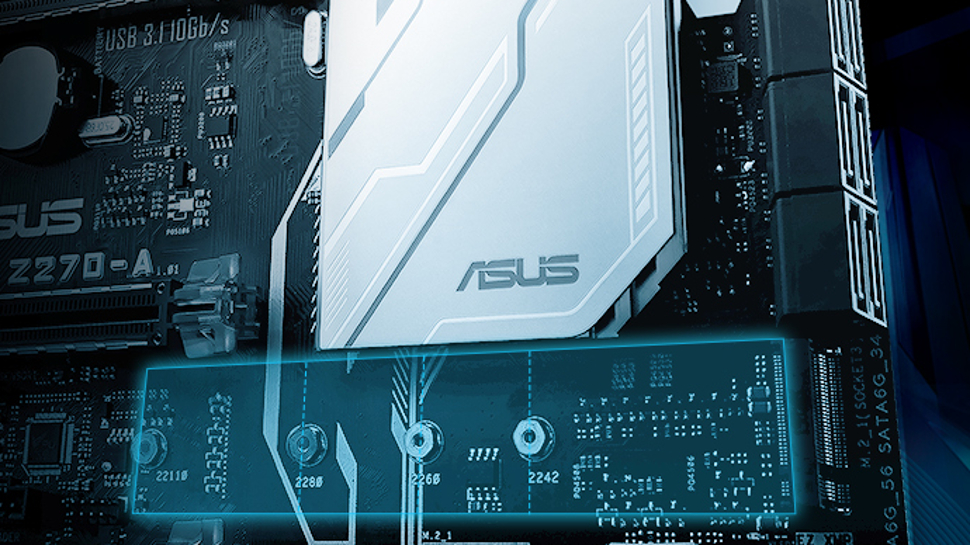Asus unleashes the power of Intel Optane with its newest motherboards
Those with 200-series mobos can turbocharge their hard disks

Sign up for breaking news, reviews, opinion, top tech deals, and more.
You are now subscribed
Your newsletter sign-up was successful
Asus has just pushed out UEFI BIOS updates that allow compatible motherboards to make full use of Intel’s new Optane memory for turbocharging a traditional spinning hard drive.
As we saw yesterday, Intel launched low-capacity Optane modules in 16GB or 32GB flavors, which use the motherboard’s M.2 slot, and act as a cache drive, speeding up a larger hard disk.
And Asus 200-series motherboards can now be updated to use these Optane products. The BIOS update is available now, and can be grabbed using the firm’s EZ Flash 3 utility, or via the Asus USB BIOS Flashback tool (which allows for easy installation via a USB stick).
For full instructions on how to update your BIOS, and the full list of compatible motherboards, check out Asus’ Optane microsite.
Caching in
The broad idea of these small Optane cache modules is that they bring the benefit of fast SSD-like speeds to a big old hard disk, meaning you can have your storage cake and eat it in terms of getting capacity along with speedy performance.
Much in the same vein as the traditional SSD cache drives of old introduced with Intel’s Z68 chipset some six years ago now, except the difference here is that Optane boasts even better performance gains.
Optane uses 3D Xpoint technology, and according to Intel, can make a 1TB hard disk (spinning at 7,200 rpm) twice as responsive when performing daily computing tasks or booting up, and can reduce the time it takes for a game to launch (or level to load) by around the 65% mark.
Sign up for breaking news, reviews, opinion, top tech deals, and more.
Of course, a pure SSD will always be faster than a cache-turbocharged hard disk, but Optane offers a tempting option in terms of a cost-effective speed boost (a 16GB module will set you back $44 – that’s around £35, AU$60).
Last week, Intel also launched a full Optane SSD, the DC P4800X which has a capacity of 375GB – but this is a drive aimed at data centres, with an eye-wateringly high price.
Eventually, we’ll see larger Optane-powered consumer drives with friendlier asking prices.
- After a storage bargain? These are the best SSD and HDD deals
Darren is a freelancer writing news and features for TechRadar (and occasionally T3) across a broad range of computing topics including CPUs, GPUs, various other hardware, VPNs, antivirus and more. He has written about tech for the best part of three decades, and writes books in his spare time (his debut novel - 'I Know What You Did Last Supper' - was published by Hachette UK in 2013).